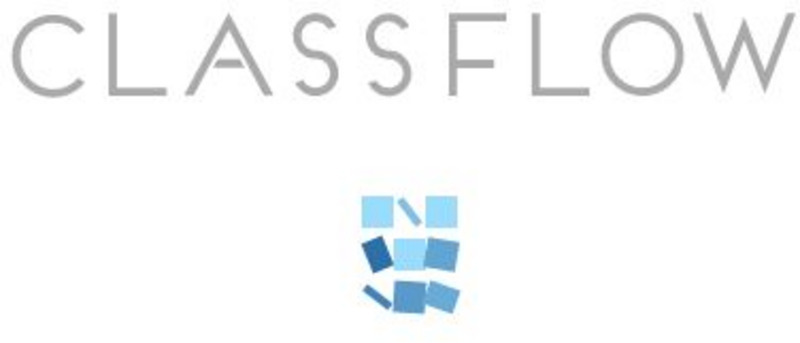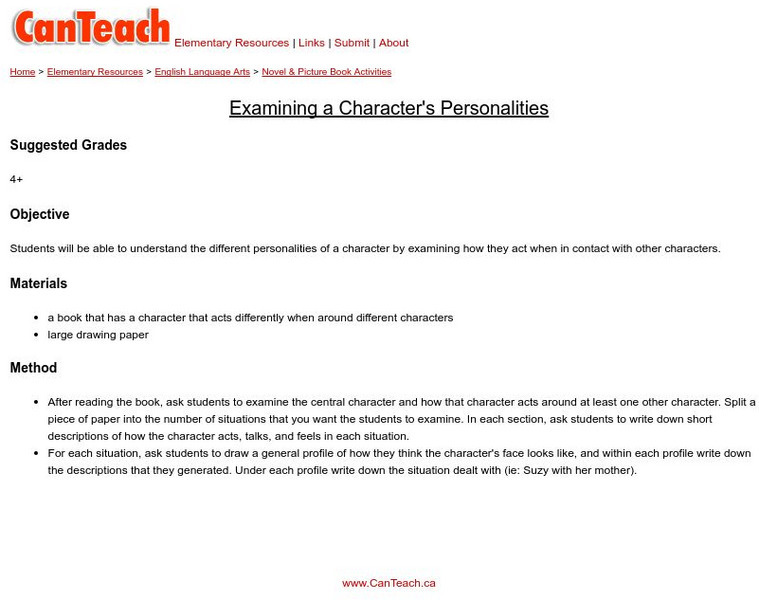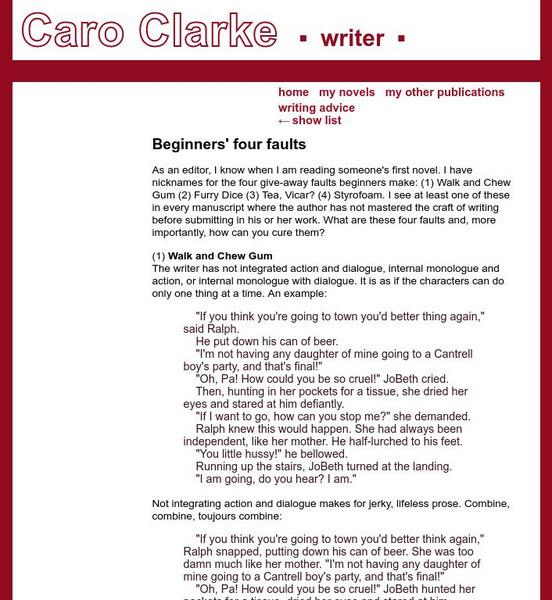Hi, what do you want to do?
TED Talks
Ted: Ted Ed: How Fiction Can Change Reality
Reading and stories can be an escape from real life, a window into another world -- but have you ever considered how new fictional experiences might change your perspective on real, everyday life? From Pride and Prejudice to Harry...
Alabama Learning Exchange
Alex: Using Fairy Tales to Teach the Short Stories
Familiar fairy tales are used as guides to help students analyze the elements of the short story: plot, theme, setting, point of view, and character.
Exploring Ancient World Cultures
Exploring Ancient World Cultures: Literature and the Middle Time
This is an essay from the University of Evansville discussing the evolution of the Middle Ages and the formation of various languages that would yield literature.
University of Oxford (UK)
Beazley Archive: Boreas
Illustrated dictionary entry for Boreas. Describes his impact on the Athenians and his role in Greek history.
University of Oxford (UK)
Beazley Archive: Centaurs
Illustrated dictionary entry for Centaurs. Describes the physical attributes of Centaurs, famous Greeks they are tied to in history, and their function outside of mythical context.
University of Pennsylvania
Penn Library: European New World Narratives
Brief analysis on the nature of European narratives about their explorations in the New World.
Mythweb
Mythweb: Greek Mythology: Theseus
A retelling of the life and adventures of Theseus, a story which incorporates parts of several different myths as well as historical accounts. Challenging vocabulary adds rigor, and a casual tone adds interest and increases opportunities...
Harold D. Underdown
October 2005 Blog: Defining Historical Fiction
A good resource for understanding the genre of historical fiction, especially when applied to the characteristics of children's literature. From The Purple Crayon: a website devoted to children's literature.
Quia
Quia: Rags to Riches: Literary Elements: Setting, Plot, and Characters
In this game, students answer questions about the story elements of setting, plot, and characters
Other
Myth and Legend From Ancient Times to the Space Age
Is there a difference between myth and legend? This site seeks to define both and point out the differences between the two. Also has a "time line" showing development of myths from ancient times to present day. Extensive information.
Other
The American Short Story: A Selective Chronology
This resource provides a brief chronology of the American short story divided into periods and providing important authors of the period and their works.
Quia
Quia: Compare/contrast Character, Plot, and Setting Test
This interactive activity assesses students' understanding of the story elements. Students will read passages that include a short story and a brief drama; then students will answer assorted questions associated to each piece.
Quia
Quia: Story Elements
This interactive game of "Rags to Riches" assesses students' knowledge of story elements. Students will identify the definitions of the story elements and the applications of story elements in stories.
University of Victoria (Canada)
The U Vic Writer's Guide: Literary Term: Myth
This site from The UVic Writer's Guide provides a general description of the literary term "myth."
Houghton Mifflin Harcourt
Holt, Rinehart and Winston: Elements of Literature: Analyzing a Myth [Pdf]
A brief worksheet/organizer in which students can analyze the content of a given mythological story. Includes five questions and space for students answers and analysis.
Houghton Mifflin Harcourt
Holt, Rinehart and Winston: Elements of Literature: The Short Story [Pdf]
A short group of exercises for students concerning the elements of a short story. Allows students to examine the major story elements, then apply those elements to a given piece of literature.
Houghton Mifflin Harcourt
Holt, Rinehart and Winston: Elements of Literature: Determining Methods of Characterization [Pdf]
A brief organizer in which students can document how a character in literature is presented, through either direct or indirect characterization. Provides labels, examples, and sections for textual support.
Sophia Learning
Sophia: Characters and Setting
This lesson introduces the connection between characters and setting in fiction writing.
EL Education
El Education: Kurare
After researching slavery and personal experiences of slaves with primary and secondary resources, students create a fictional character that is historically and geographically accurate. Character files include a portrait, a narrative...
ClassFlow
Class Flow: Short Story Unit Applying Literary Terms
[Free Registration/Login Required] This flipchart is a review and assessment of a collection of short stories. The following literary terms are applied to the stories: plot structure, types of characters, characterization, irony,...
ClassFlow
Class Flow: Story Elements
[Free Registration/Login Required] This flipchart defines the elements of a story: character, setting, theme, and conflict.
Can Teach
Can Teach: Tabloid Science Fiction
In this lesson plan students will write science fiction stories based on stories brought up in the tabloids. Lesson plan indicated for 5th grade and above.
Can Teach
Can Teach: Examining a Character's Personalities
In this lesson plan students will be able to understand the different personalities of a character by examining how they act when in contact with other characters. Lesson plan indicated for 4th grade and above.
Caro Clarke
Caro Clarke: Writing Advice: Beginner's Four Faults
This site is a personal site from Caro Clarke. The third installment in this series looks at the four major mistakes made by beginning authors. The main idea of this article is that the author needs to be able to combine dialogue with...








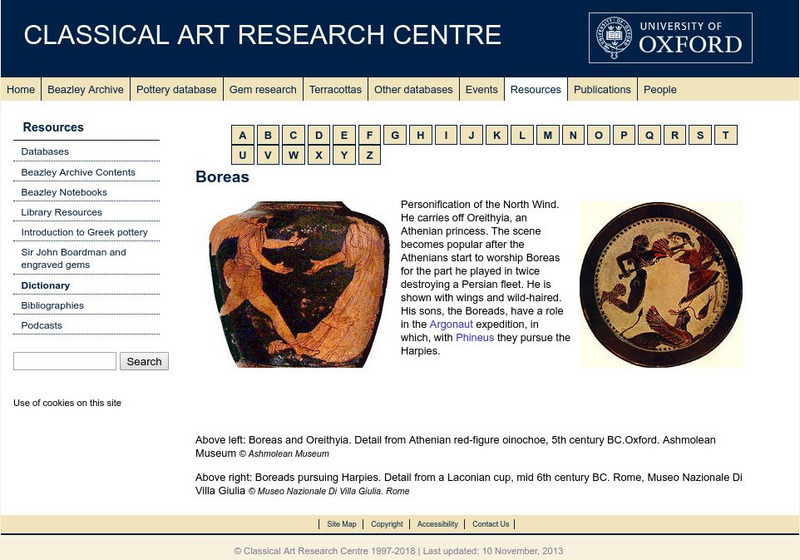
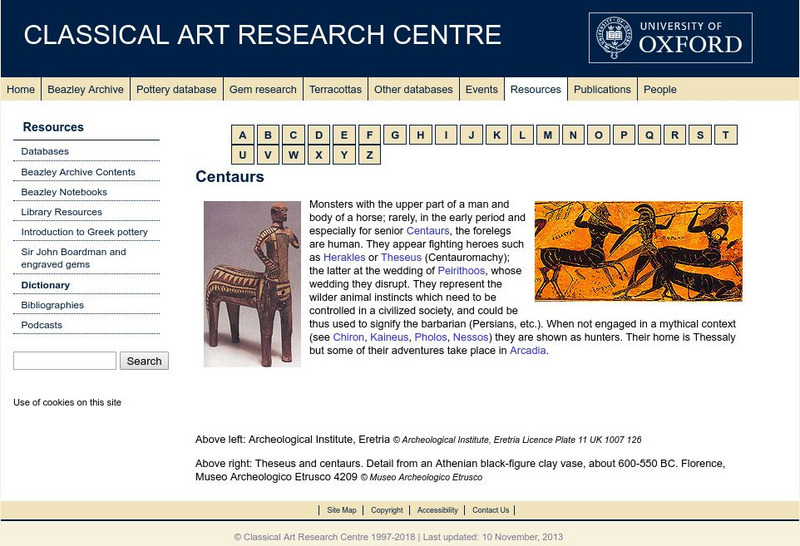

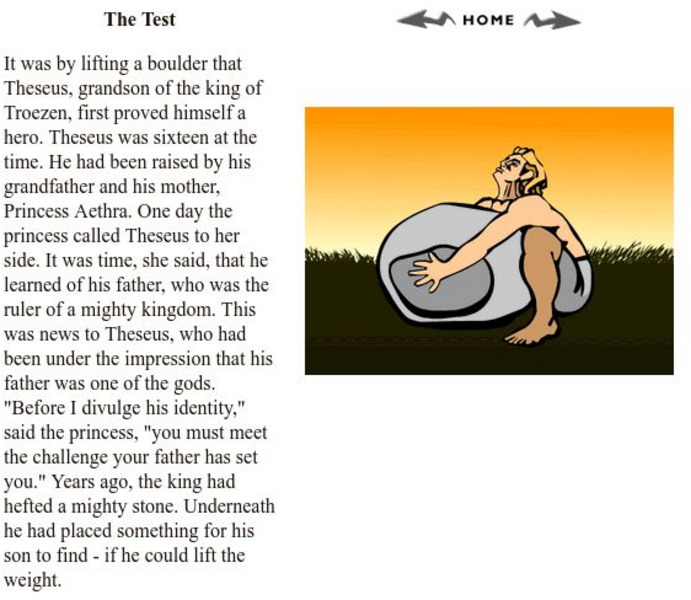


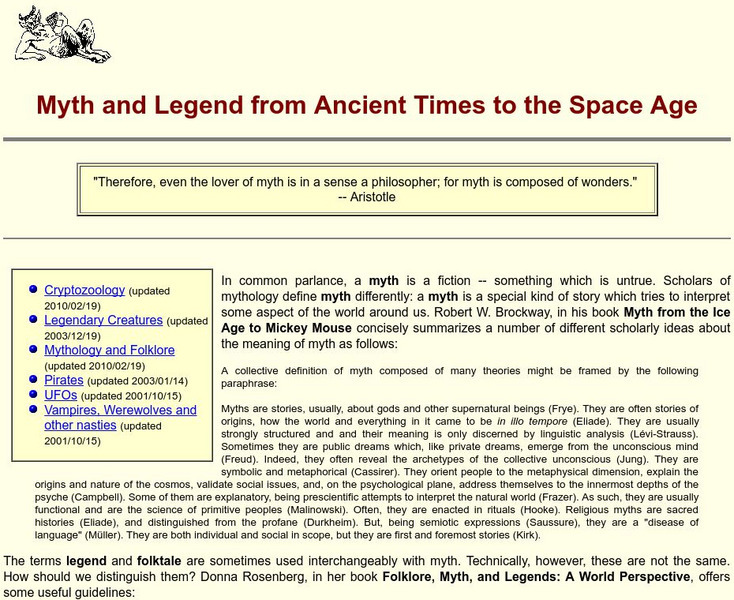
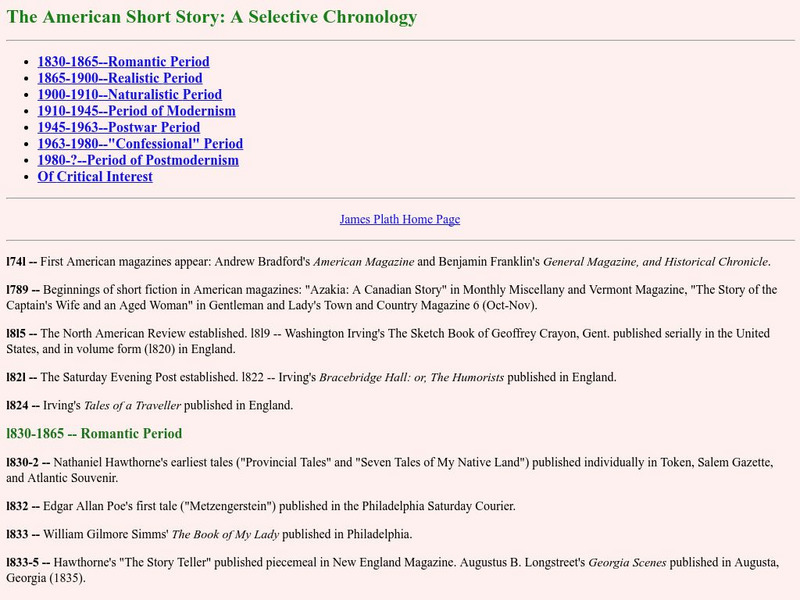


![Holt, Rinehart and Winston: Elements of Literature: Analyzing a Myth [Pdf] Graphic Holt, Rinehart and Winston: Elements of Literature: Analyzing a Myth [Pdf] Graphic](http://lessonplanet.com/content/resources/thumbnails/410056/large/bwluav9tywdpy2symdiwmduymc03nzc3ltexmgnrbhyuanbn.jpg?1589985144)
![Holt, Rinehart and Winston: Elements of Literature: The Short Story [Pdf] Unit Plan Holt, Rinehart and Winston: Elements of Literature: The Short Story [Pdf] Unit Plan](http://lessonplanet.com/content/resources/thumbnails/410057/large/bwluav9tywdpy2symdiwmduymc03ode4lte1bw5wdgouanbn.jpg?1589985144)
![Holt, Rinehart and Winston: Elements of Literature: Determining Methods of Characterization [Pdf] Graphic Holt, Rinehart and Winston: Elements of Literature: Determining Methods of Characterization [Pdf] Graphic](http://lessonplanet.com/content/resources/thumbnails/410109/large/bwluav9tywdpy2symdiwmduymc0ymjy4mc0xz3pvamf3lmpwzw.jpg?1589985471)



